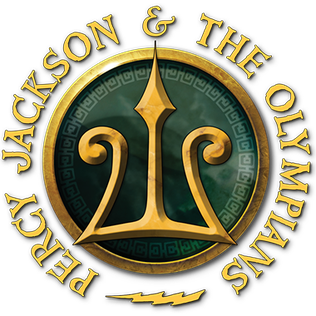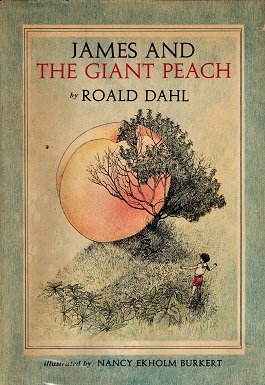Mo Yan
Explore the comprehensive timeline of Mo Yan, the acclaimed Chinese novelist and Nobel Prize in Literature laureate. Discover key events in his life, from his early years and education to his groundbreaking literary contributions and international recognition.
Birth of Mo Yan
Mo Yan was born on February 17, 1955, in Gaomi County, Shandong Province, China. His birth name was Guan Moye, but he later adopted the pen name Mo Yan, which means 'don't speak' in Chinese. Growing up in rural China, Mo Yan lived through significant periods in Chinese history that later influenced his writing. His family's struggles and the cultural landscape of his hometown often appear in his works, vividly depicting the life and challenges of rural Chinese communities.
Mo Yan joins the People's Liberation Army
In September 1981, Mo Yan joined the People's Liberation Army (PLA) of China. This decision significantly shaped his development as a writer, as it was during his time in the PLA that he began to write seriously. The military also provided him with opportunities for education and access to a wider range of literature. His experiences in the army, including the discipline and the camaraderie, are reflected in some of his stories, contributing to his literary voice and style.
Mo Yan's publication breakthrough
Mo Yan published his first novella 'A Transparent Carrot' in 1985, marking his breakthrough in the Chinese literary scene. The novella caught the attention of leading Chinese critics, recognizing Mo Yan's potential as a new voice in Chinese literature. This work paved the way for his future success and established his ability to combine mythical realism with critical insights into society and culture.
Publication of Red Sorghum
Mo Yan published 'Red Sorghum' in February 1986, a novel that would become one of his most celebrated works. Set in his native Shandong province, the novel tells a powerful and vivid tale of family and sacrifice set against the backdrop of war-torn China. It catapulted Mo Yan to fame both critically and commercially in China. The novel later inspired an internationally acclaimed film directed by Zhang Yimou.
Publication of Big Breasts and Wide Hips
In 1997, Mo Yan published 'Big Breasts and Wide Hips', a novel that expanded his reputation as a significant Chinese author. The novel is expansive, covering the history of China in the 20th century through the experiences of a woman with eight daughters and one son. It was both praised and controversial, as it delves into topics such as feminism, war, and survival in a patriarchal society, with Mo Yan's characteristic blend of raw realism and humor.
Publication of Frog
In September 2009, Mo Yan published 'Frog', a novel that tackles China's controversial one-child policy through the life of a rural midwife. The novel is a powerful narrative exploring themes of fertility, control, and the societal impact of government policies on families and individuals. 'Frog' won several literary awards and was widely acclaimed for its candid exploration of sensitive topics, cementing Mo Yan's reputation as an influential voice in contemporary literature.
Mo Yan wins the Nobel Prize in Literature
On October 11, 2012, Mo Yan was awarded the Nobel Prize in Literature. The Swedish Academy praised Mo Yan for his 'hallucinatory realism' that merges folk tales, history, and the contemporary. This prestigious award highlighted his international reputation and underscored his literary achievements. Mo Yan became the first writer living in mainland China to win the Nobel Prize in Literature, marking a significant milestone in the recognition of Chinese literature globally.
Mo Yan elected to Chinese Academy of Sciences
In 2016, Mo Yan was elected to the Chinese Academy of Sciences, an acknowledgment of his significant contributions to literature and arts in China. His election was part of a broader recognition of the role that literature and arts play in scientific and cultural advancements. Mo Yan's affiliation with such a prestigious institution underscored his stature as a cultural figure of importance both within and outside China.
Mo Yan speaks at the Nobel Prize Summit
On December 12, 2018, Mo Yan delivered a speech at the Nobel Prize Summit in Stockholm, where he discussed the responsibilities of writers in society. His speech emphasized storytelling as a means of addressing and reflecting societal issues. Mo Yan's appearance at the summit reinforced his ongoing influence in literary and cultural discussions, as well as his commitment to using literature to engage with social and moral questions.
Publication of Late Blooms
In November 2021, Mo Yan published 'Late Blooms', a collection of short stories that continues his exploration of the human condition through the lens of rural Chinese life. The stories in this collection reflect on aging, change, and resilience, using Mo Yan's characteristic style of intertwining fantastical elements with deeply human experiences. The collection was well received in literary circles, adding to his body of influential literary work.
Frequently asked questions about Mo Yan
Discover commonly asked questions regarding Mo Yan. If there are any questions we may have overlooked, please let us know.
When did Mo Yan receive the Nobel Prize in Literature?
When was Mo Yan born?
Who is Mo Yan?
What are some of Mo Yan's most famous works?
Related timelines
More timelines connected to Mo Yan






